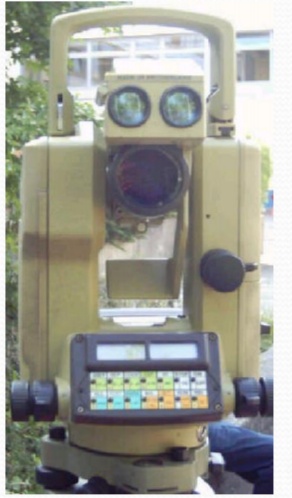THREE POINT PROBLEM
Three point problem is
“Given three visible stations and their plotted
Methods of Solution
1. Mechanical method (Tracing paper
method
2. Graphical method (Bessel’s method)
3. Trial and error method
Graphical Method (Bessel)
1. A,B,C stations are three well defined
It is required to locate a station at P.
2. The table is placed at the required station
3. With the alidade centred on c , the point
4. Again the alidade is placed along the line
5. With the alidade, touching the position a,
6. The alidade is placed along the line db,
point.
7. The point is transfered to the ground by
TRACING PAPER METHOD
1The table is placed at P and levelled. A
2. With the alidade centred on P, the points
3. Now the tracing paper is removed and
• The point p is picked with a pin to give a
• Alidade is centred on p and the rays are
TRIAL AND ERROR METHOD
1. Set up the plane table at S. The station S
2. Orient the table approximately.
3. Now keeping the alidade at s, draw the three
4. Select a new position of s and draw again the
will be formed.
Lehmann’s Rules:
1. If S is outside the great triangle PQR, then s
will be outside triangle of error. If S is inside
PQR, triangle of error will be inside PQR and s
will be inside the triangle of error.
2. The position of s will be such that its distance
from pP,qQ and Rr will be proportional to
distance of S from P,Q,R.
3. S will lie on the same side of pP,qQ and rR.
ERRORS
1. Table not levelled.
2. Table not oriented.
3. Wrong placement of alidade.
4. Inaccurate bisection of objects.
5. Improper clamping.
6. Lines not accurately drawn.
7. Inaccurate scaling and plotting
8. Expansion/contraction of paper.










0 Comments